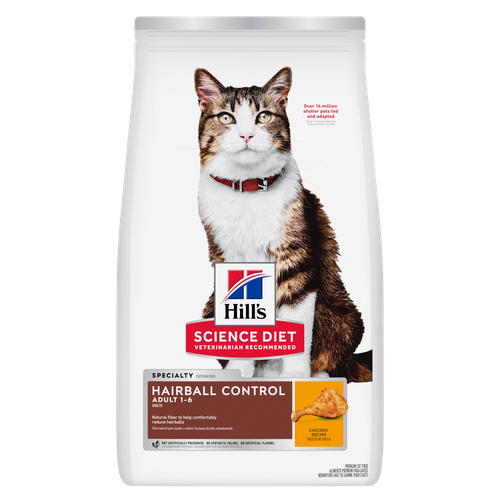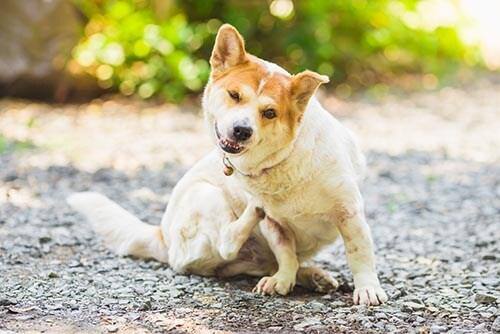
-
Find the right food for your petTake this quiz to see which food may be the best for your furry friend.Find the right food for your petTake this quiz to see which food may be the best for your furry friend.Health CategoryFeatured products
 Adult Perfect Weight & Joint Support Chicken & Brown Rice Recipe Dog Food
Adult Perfect Weight & Joint Support Chicken & Brown Rice Recipe Dog FoodThis weight management and mobility support dog food was created with Hill’s unique understanding of the biology of overweight dogs.
Shop Now Adult Perfect Digestion Chicken, Barley & Whole Oats Recipe Dog Food
Adult Perfect Digestion Chicken, Barley & Whole Oats Recipe Dog FoodScience Diet's breakthrough nutrition supports ultimate digestive well-being & healthy microbiome
Shop Now Hill's Science Diet Adult Healthy Mobility Large Breed Chicken Meal, Barley & Brown Rice Recipe Dog Food
Hill's Science Diet Adult Healthy Mobility Large Breed Chicken Meal, Barley & Brown Rice Recipe Dog FoodAdvanced nutrition shown to support joint health and improve mobility
Shop NowFeatured products Adult Hairball Control Chicken Recipe Cat Food
Adult Hairball Control Chicken Recipe Cat FoodNatural fibre comfortably reduces hairballs
Shop Now Adult Healthy Cuisine Roasted Chicken & Rice Medley Cat Food
Adult Healthy Cuisine Roasted Chicken & Rice Medley Cat FoodDelicious roasted chicken and rice in a mouthwatering sauce
Shop Now Adult Perfect Digestion Chicken, Barley & Whole Oats Recipe Cat Food
Adult Perfect Digestion Chicken, Barley & Whole Oats Recipe Cat FoodHill's Science Diet's breakthrough nutrition supports ultimate digestive well-being & healthy microbiome
Shop Now -
DogCat
- Cat Tips & Articles
-
Health Category
- Weight
- Skin & Food Sensitivities
- Urinary
- Digestive
- Kidney
- Dental
- Serious Illness
-
Life Stage
- Kitten Nutrition
- Adult Nutrition
Featured articles Tips on How to Store Your Dog or Cat Food Properly
Tips on How to Store Your Dog or Cat Food ProperlyWhere you store your cat and dog food can make a big difference in the quality and freshness once it is opened. Here are some common questions and recommendations for optimal storage for all of Hill’s dry and canned cat and dog food.
Read More Water
WaterWater is the most important nutrient of all and essential for life. Animals can lose almost all their fat and half their protein and still survive, but if they lose 15% of their water, it will mean death.
Read More Fun Ideas for Kids and Pets This Summer
Fun Ideas for Kids and Pets This SummerOutdoor summer activities with your dog or cat can be fun for kids, too. Learn how they also teach kids responsibility & creates a bond with their pet.
Read More -


Has your dog been scratching themselves? Does their skin look red? Do they have pimples or an odor to their skin? They could have a condition known as dog pyoderma or puppy pyoderma in puppies — a common skin condition that plagues dogs of all shapes, sizes and ages. If you're concerned that pyoderma could be wreaking havoc on your dog's skin, read on to learn common causes and treatments for the infection.
What Is Pyoderma in Dogs?
Pyoderma is a superficial bacterial infection that affects hair follicles and the surrounding skin. If you break it down, "pyo" means pus, and "derma" means skin. Pyoderma in dogs usually has an underlying cause, such as:
- A foreign body, like grass seed, getting under the skin
- A trauma or bite wound
- An allergy or hypersensitivity to fleas, food or environmental factors
- Mites
- A hormonal disorder, like Cushing's syndrome, hypothyroidism or autoimmune disorders
- Administration of immune-suppressing drugs, like chemotherapy or steroids
- Poor nutrition
What Are the Signs of Pyoderma in Dogs?
Pyoderma can present in a variety of ways. It can be limited to one area, or it may cover your dog's skin. Some areas of the body, such as skin folds, chins, lips, vulvar folds and the skin in between the toes are more likely to be affected. Sometimes pyoderma is extremely itchy, such as in cases of flea allergy dermatitis; other times, it doesn't seem to make a dog itchy at all. Signs of pyoderma to look out for include:
- Red bumps
- Pustules
- Flaking skin
- Hair loss
- Skin discoloration
- Excessive shedding
- Redness
Puppies can get a special kind of pyoderma called puppy pyoderma. Your dog may have puppy pyoderma if you see red bumps in the armpits, groin and/or on the abdomen. These red bumps can scab over and scale. Puppy pyoderma can make your dog slightly itchy, but pups with puppy pyoderma are usually otherwise in good health.


Tasty Tips
What Is the Treatment of Pyoderma in Dogs?
Treatment of pyoderma is usually aimed at resolving the bacterial infection and addressing the underlying cause, if applicable. Pyoderma in dogs is directly treated with antimicrobial therapy — either oral antibiotics or topical antibacterial medication, shampoo or spray applied to the affected area. Pyoderma is usually caused by Staphylococcus bacteria (or Staph). Unless your dog has a drug-resistant species, Staph infections are usually easily cleared up.
If your vet suspects pyoderma, then they will take a sample from the skin and put it under the microscope to look for bacteria and other organisms, such as mites. They may also order a fungal culture or a black light test to rule out ringworm.
The greater challenge with pyoderma in dogs is determining the underlying cause of the infection, which you and your vet will need to work together to figure out. There may be some trial and error involved; your vet may ask to take some blood, skin or urine samples from your dog.
Does Nutrition Play a Role in Treating or Preventing Pyoderma?

Nutrition and your dog's food plays a large role in treating and preventing pyoderma. If your dog's body detects malnutrition, then it will push all resources to the vital organs; as a result, skin and coat quality will suffer and show signs of pyoderma. Dogs with ingredient sensitivities or food allergies may also develop pyoderma after eating something that causes a reaction. If a dog has gastrointestinal issues, then they can also be predisposed to skin problems including pyoderma.
If your vet suspects a food allergy, then in addition to treating the skin infection, they may recommend feeding your dog a food with novel protein or a hydrolyzed dog food to see if the skin problem abates.
If your dog doesn't have food allergies but has pyoderma secondary to other health concerns, like a hormonal disorder, then it might be a good idea to feed your dog a food that's specially formulated for dogs with sensitive skin. It's important to make sure your dog receives the best nutrition possible, targeted at the specific cause of pyoderma, which your vet can help you choose.
Pyoderma is a pain, but with a little knowledge and care, it can be resolved. If your dog develops pyoderma, especially more than once, understand that you're dealing with an underlying issue that needs resolution. If you notice any of the signs of the infection, call your vet so that you can work together to get your pup back to feeling like their best self.


Dr. Sarah Wooten graduated from UC Davis School of Veterinary Medicine in 2002. A member of the American Society of Veterinary Journalists, Dr. Wooten divides her professional time between small animal practice in Greeley, Colorado, public speaking on associate issues, leadership, and client communication, and writing. She enjoys camping with her family, skiing, SCUBA, and participating in triathlons.
Related products

Advanced nutrition shown to support joint health and improve mobility

This weight management and mobility support dog food was created with Hill’s unique understanding of the biology of overweight dogs.

Science Diet's breakthrough nutrition supports ultimate digestive well-being & healthy microbiome

Hill's Science Diet Sensitive Stomach & Skin Large Breed dry dog food is gentle on stomachs while nourishing skin & promoting a lustrous coat. In a delicious large bite size for large breed dogs.
Related articles

Learn about choosing the right dog food to help ensure your mature older dog will receive the correct balance of nutrition.

Learn what you can feed your pregnant or nursing dog to keep her and her new pups healthy.

Learn how today's wet dog food blends have gotten a face lift, and how you'll provide your dog the nutrition he needs in the form he loves.

Large breeds of dogs have different nutritional needs than smaller breeds. Learn more about the specific needs of large and giant breeds.

Put your dog on a diet without them knowing
Our low calorie formula helps you control your dog's weight. It's packed with high-quality protein for building lean muscles, and made with purposeful ingredients for a flavorful, nutritious meal. Clinically proven antioxidants, Vitamin C+E, help promote a healthy immune system.
Put your dog on a diet without them knowing
Our low calorie formula helps you control your dog's weight. It's packed with high-quality protein for building lean muscles, and made with purposeful ingredients for a flavorful, nutritious meal. Clinically proven antioxidants, Vitamin C+E, help promote a healthy immune system.


